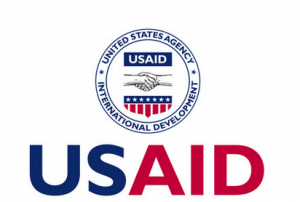[ad_1]

The project recognised that water and sanitation, agriculture, and environment played critical roles in improving nutrition, which informed the need to effectively coordinate actors in those sectors to address malnutrition issues in the country.
Speaking at a closeout event of the USAID Advancing Nutrition Ghana project in Wa, Mr Selorme Kofi Azumah, the Chief of Party, USAID Advancing Nutrition Ghana, observed that funding for nutrition had been one of the cardinal challenges of enhancing the nutrition situation in the country.
He said nutrition intervention in the country had been donor-funded but that the project had worked with the District Planning and Coordinating Units (DPCUs) to facilitate the planning and integration of FNS interventions into development planning processes.
He said that had ensured increased budget allocation for nutrition in the districts’ Medium-term Development Plans (MTDPs).
“As a country, we have not made efforts to sort of plan, and fund nutrition domestically so once the donor funding dries up or ends that is the end of the intervention.
So, to be able to change the narrative around nutrition funding, it is important that as part of the development planning process, we have nutrition and food security integrated into our development planning, and budgeted accordingly for,” he explained.
The project, which started in the country about three years ago, also sought to confront weak systems for coordination and collaboration among sectors in addressing malnutrition, inadequate capacity in multisectoral nutrition planning and implementation, gaps in the capacity of health workers, and gaps in the availability of data capturing tools for service delivery.
Mr Selorme explained that the project worked with the National Development Planning Commission (NDPC) to strengthen the multisectoral nutrition coordinating group and the District Assemblies to form the District Nutrition Coordination Committees (DNCC) in efforts to improve the nutrition situation in the country.
He urged the District Assemblies to release funds budgeted for nutrition interventions in the Medium-Term Development Plans saying, “By that, we are on the journey towards sustainable financing for nutrition and owning it domestically.”
The project implementation, which started in 17 districts in four regions of the north, was scaled up to 55 districts in all five regions of the north, including all eleven municipalities and districts in the Upper West Region.
Recounting the successes of the project, Mr Selorme said the project, among other things, had improved knowledge and understanding of nutrition-specific and nutrition-sensitive departments and assembly members on multisectoral nutrition through orientations, learning events and training, among others.
Mr Selorme, therefore, urged the stakeholders to complete the integration of DNCC members into the DPCU to make nutrition a key part of the agenda for DPCU meetings, and to continue to provide monitoring support to the 340 VSLA and MTMSGs until they were fully mature and became independent.
Madam Gilian Ganaa, the Daffiama-Bussie-Issa District Nutrition Officer, observed that since the inception of the project it had facilitated engagement between the GHS and the departments within the assembly.
She said it had also offered several training courses for frontline health staff in areas including Community Management of Acute Malnutrition (CMAM) and supported them with maternal health booklets for improved maternal and child health services, among others.
Heads of Departments and Agencies, traditional leaders and representatives of non-government organisations among others attended the closeout event on the theme: “Deepening the Multi-Sectoral Nutrition Agenda-The USAID Advancing Nutrition Story.”
Source: GNA
[ad_2]
Source link
